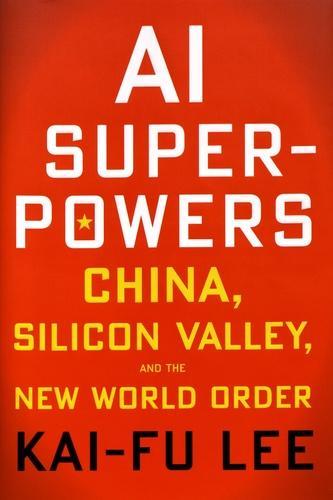Kai-Fu Lee (traditional Chinese: 李開復; simplified Chinese: 李开复; pinyin: Lǐ Kāifù; born December 3, 1961) is a Taiwanese computer scientist, businessman, and writer. He is currently based in Beijing, China. Lee developed a speaker-independent, continuous speech recognition system as his Ph.D. thesis at Carnegie Mellon University. He later worked as an executive, first at Apple, then SGI, Microsoft, and Google. He became the focus of a 2005 legal dispute between Google and Microsoft, his former employer, due to a one-year non-compete agreement that he signed with Microsoft in 2000 when he became its corporate vice president of interactive services.He works in the Chinese internet sector and was the founding director of Microsoft Research Asia, serving from 1998 to 2000; and president of Google China, serving from July 2005 through September 4, 2009. After resigning from his post, he founded Sinovation Ventures, a venture capital firm. He created a website, Wǒxuéwǎng (Chinese: 我学网; lit. 'I-Learn Web') dedicated to helping young Chinese people in their studies and careers and wrote "10 Letters to Chinese College Students". He is a micro-blogger in China, in particular on Sina Weibo, where he has over 50 million followers. In his 2018 book AI Superpowers: China, Silicon …
Kai-Fu Lee
Autorearen xehetasunak
- Jaiotza:
- 1961ko abe. 3a
Kanpoko estekak
Kai-Fu Lee (traditional Chinese: 李開復; simplified Chinese: 李开复; pinyin: Lǐ Kāifù; born December 3, 1961) is a Taiwanese computer scientist, businessman, and writer. He is currently based in Beijing, China. Lee developed a speaker-independent, continuous speech recognition system as his Ph.D. thesis at Carnegie Mellon University. He later worked as an executive, first at Apple, then SGI, Microsoft, and Google. He became the focus of a 2005 legal dispute between Google and Microsoft, his former employer, due to a one-year non-compete agreement that he signed with Microsoft in 2000 when he became its corporate vice president of interactive services.He works in the Chinese internet sector and was the founding director of Microsoft Research Asia, serving from 1998 to 2000; and president of Google China, serving from July 2005 through September 4, 2009. After resigning from his post, he founded Sinovation Ventures, a venture capital firm. He created a website, Wǒxuéwǎng (Chinese: 我学网; lit. 'I-Learn Web') dedicated to helping young Chinese people in their studies and careers and wrote "10 Letters to Chinese College Students". He is a micro-blogger in China, in particular on Sina Weibo, where he has over 50 million followers. In his 2018 book AI Superpowers: China, Silicon Valley, and the New World Order, Lee describes how China is rapidly moving forward to become the global leader in AI, and may well surpass the United States, because of China's demographics and its amassing of huge data sets. In a 28 September 2018 interview on the PBS Amanpour program, he stated that artificial intelligence, with all its capabilities, will never be capable of creativity or empathy.
